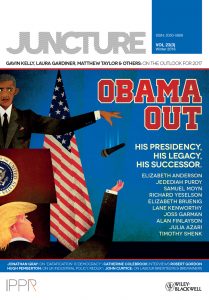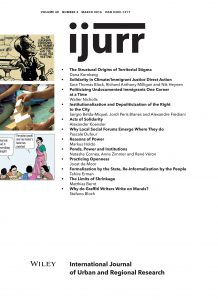Gendering HIV/AIDS Discourse
nmccoy1
 Pope Benedict’s recent visit to Africa (see BBC article below) included comments on the AIDS epidemic that has disproportionately affected Africans worldwide. While staying true to Catholic doctrine and its teachings on abstinence, his insistence that condoms are both ineffective against the spread of HIV/AIDS and can in fact increase the rate of contamination further diminish the gendered aspects of this problem. The fact that condoms are a cheap and accessible form of birth control has been overshadowed by these forms of inflammatory discussions. What is not articulated is the way in which women are particularly more vulnerable to the disease, the cultural problems associated with women asking husbands to wear condoms, the lack of legal protection for women refusing sexual relations in marriage, and an account of rape. The Pope, like many other leaders and medical experts have failed to interrogate the particularly gendered and racialized aspects of the spread of HIV/AIDS. This dominant ideological conversation of the disease being spread through one night stands, drug use, irresponsible sex, and homosexuality only serves to make women and other marginal groups simultaneously vulnerable and invisible. Foucault’s work on discourse and sexuality highlights the ways that power organizes, controls, and administers bodies in particular ways, making them subject and object of investigation and discipline.
Pope Benedict’s recent visit to Africa (see BBC article below) included comments on the AIDS epidemic that has disproportionately affected Africans worldwide. While staying true to Catholic doctrine and its teachings on abstinence, his insistence that condoms are both ineffective against the spread of HIV/AIDS and can in fact increase the rate of contamination further diminish the gendered aspects of this problem. The fact that condoms are a cheap and accessible form of birth control has been overshadowed by these forms of inflammatory discussions. What is not articulated is the way in which women are particularly more vulnerable to the disease, the cultural problems associated with women asking husbands to wear condoms, the lack of legal protection for women refusing sexual relations in marriage, and an account of rape. The Pope, like many other leaders and medical experts have failed to interrogate the particularly gendered and racialized aspects of the spread of HIV/AIDS. This dominant ideological conversation of the disease being spread through one night stands, drug use, irresponsible sex, and homosexuality only serves to make women and other marginal groups simultaneously vulnerable and invisible. Foucault’s work on discourse and sexuality highlights the ways that power organizes, controls, and administers bodies in particular ways, making them subject and object of investigation and discipline.
The Pope in Africa





1468-0491/asset/society_affiliation_image.gif?v=1&s=859caf337f44d9bf73120debe8a7ad67751a0209)
Great application of Foucault. Masculinity in the Catholic church is something else that might be a contributing factor in discourse on HIV/AIDS. Thanks for this interesting post.
Keri